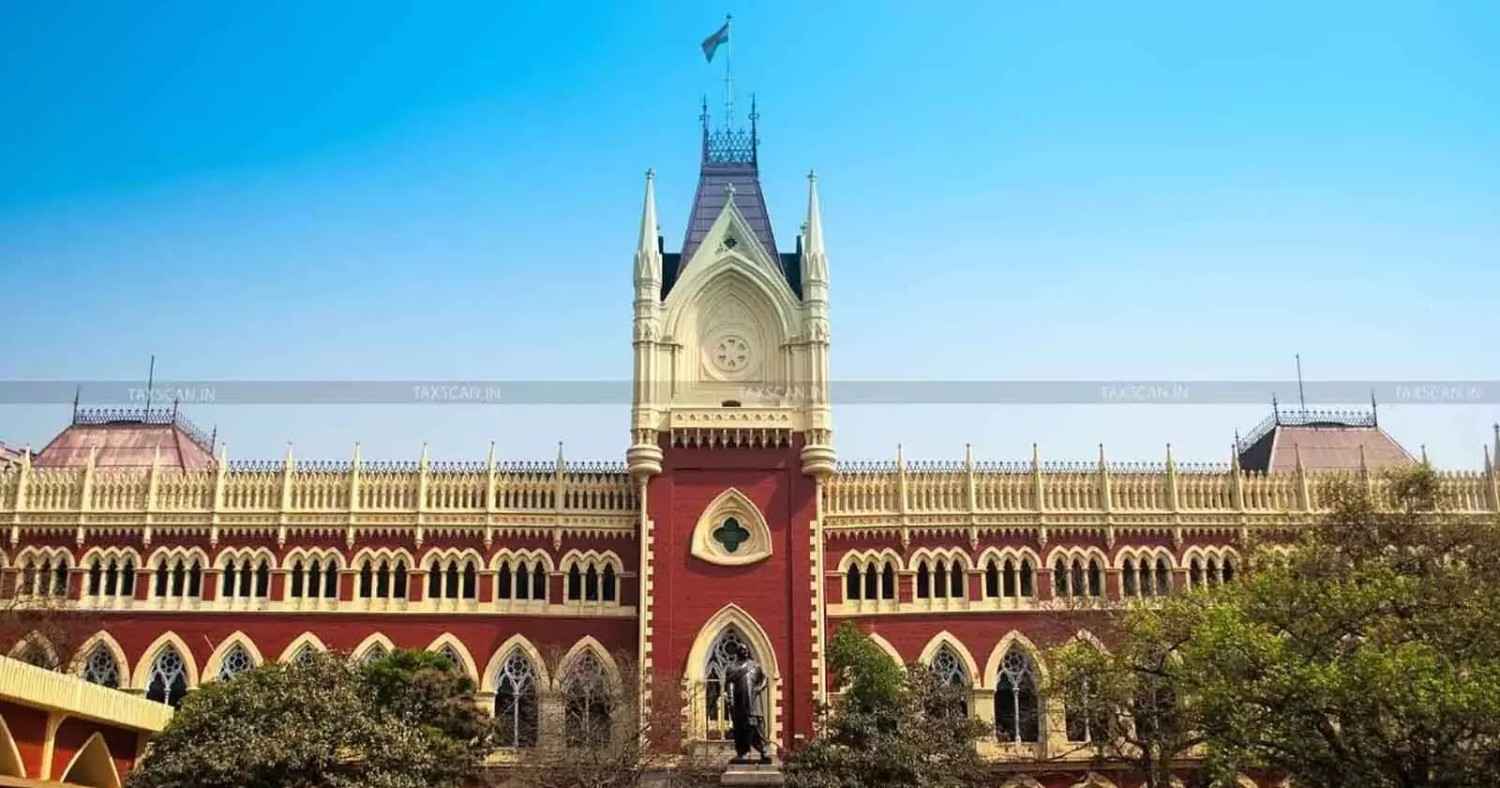Liability of Legal Heir Limited to Assets Inherited from Partners of Defaulter Firm: Punjab & Haryana HC sets aside Income Tax Attachment [Read Order]
The Bench said that legal heirs cannot be held personally liable beyond the assets inherited from the deceased; nor can their independent assets be attached for tax arrears of the deceased unless it is shown that such assets formed part of the estate inherited.
![Liability of Legal Heir Limited to Assets Inherited from Partners of Defaulter Firm: Punjab & Haryana HC sets aside Income Tax Attachment [Read Order] Liability of Legal Heir Limited to Assets Inherited from Partners of Defaulter Firm: Punjab & Haryana HC sets aside Income Tax Attachment [Read Order]](https://images.taxscan.in/h-upload/2025/11/18/2106410-legal-heir-punjab-and-haryana-hc-income-tax-attachment-taxscan.webp)
The Punjab & Haryana High Court has held that the liability of a legal heir under the Income Tax Act is strictly limited to the value of the estate inherited from the deceased, and in the absence of any evidence showing that the legal heir inherited assets from a defaulting partner of a firm, the Revenue cannot mechanically attach the heir’s independent assets or bank accounts.
The Court consequently set aside an attachment order issued by the Income Tax Department seeking to recover tax dues from the petitioner, Anita Rani, for liabilities relating to a partnership firm in which her late husband was a partner.
The fact is that the Income Tax Department sought to recover outstanding tax of ₹1,18,615 from M/s Sham Lal Siri Ram, Sangrur, a partnership firm that had failed to discharge its assessed tax liability.
The Revenue, unable to recover dues from the firm or the partners, issued a notice dated 09.08.2002 directing the bank to attach a joint savings account held by the petitioner and her husband, Krishan Kumar, treating the petitioner as a legal heir of the firm’s partner. The attached account had a balance of ₹60,002, which authorities sought to appropriate towards the firm’s outstanding liability.
Challenging the attachment, the petitioner argued that the money in the bank account represented her rental income and had no connection whatsoever with the affairs or liabilities of the partnership firm.
She further submitted that there was no material indicating that she had inherited any property or estate from the partners of the defaulting firm, and therefore, the Income Tax Department had no authority to fasten liability on her beyond the assets inherited.
The counsel asserted that under the statutory scheme, the Revenue could recover dues only from assets inherited from the deceased partner, not from independent assets belonging to a legal heir.
The Revenue, on the other hand, contended that it was the responsibility of the petitioner to establish that she had not inherited any property from the deceased partner. In the absence of such evidence, the Department argued it was justified in attaching available assets, including the bank account in question.
The Division Bench of Justices Jagmohan Bansal and Amarinder Singh referred to Sections 159 and 189 of the Income Tax Act, 1961. The Court said that Section 159 explicitly limits the liability of a legal representative only to the extent to which the estate of the deceased is capable of meeting the liability, and Section 189, which governs recovery from dissolved or discontinued firms, does not override this safeguard.
The Bench stated both the legal provisions and noted that legal heirs cannot be held personally liable beyond the assets inherited from the deceased; nor can their independent assets be attached for tax arrears of the deceased unless it is shown that such assets formed part of the estate inherited.
 Also Read:Hostel Use by Working-Class Tenants Constitutes Residential Occupancy: Madras HC Sets Aside Commercial Tax Demands [Read Order]
Also Read:Hostel Use by Working-Class Tenants Constitutes Residential Occupancy: Madras HC Sets Aside Commercial Tax Demands [Read Order]
Accordingly, the High Court held that the Department’s action in attaching the petitioner’s bank account was unjustified. There was no material whatsoever on record to suggest that the petitioner inherited any estate or property belonging to the defaulting partner of the firm.
The Revenue, therefore, exceeded its authority by attaching her private bank account, which could not be treated as part of the inherited estate, said the bench.
Furthermore, the bench observed that the attachment had been made mechanically without establishing the foundational requirement of inherited assets. Since the liability of a legal heir is confined strictly to the estate of the deceased partner, the Department could not have proceeded against the petitioner’s independent assets in the absence of such evidence.
Accordingly, the High Court allowed the writ petition and set aside the impugned attachment order.
At the same time, the Court clarified that the Revenue remains at liberty to initiate recovery proceedings against the partnership firm, its partners, and their legal heirs but strictly in accordance with Sections 159 and 189, and only to the extent of assets actually inherited by such heirs.
Section 159 reads that:
“Legal representatives.-(1) Where a person dies, his legal representative shall be liable to pay any sum which the deceased would have been liable to pay if he had not died, in the like manner and to the same extent as the deceased.
(2) For the purpose of making an assessment (including an assessment, reassessment or recomputation under section 147) of the income of the deceased and for the purpose of levying any sum in the hands of the legal representative in accordance with the provisions of sub-section (1),—
(a) any proceeding taken against the deceased before his death shall be deemed to have been taken against the legal representative and may be continued against the legal representative from the stage at which it stood on the date of the death of the deceased;
(b) any proceeding which could have been taken against the deceased if he had survived, may be taken against the legal representative; and
(c) all the provisions of this Act shall apply accordingly.
(3) The legal representative of the deceased shall, for the purposes of this Act, be deemed to be an assessee.
(4) Every legal representative shall be personally liable for any tax payable by him in his capacity as legal representative if, while his liability for tax remains undischarged, he creates a charge on or disposes of or parts with any assets of the estate of the deceased, which are in, or may come into, his possession, but such liability shall be limited to the value of the asset so charged, disposed of or parted with.
(5) The provisions of sub-section (2) of section 161, section 162, and section 167, shall, so far as may be and to the extent to which they are not inconsistent with the provisions of this section, apply in relation to a legal representative.
(6) The liability of a legal representative under this section shall, subject to the provisions of subsection (4) and sub- section (5), be limited to the extent to which the estate is capable of meeting the liability.”
 Also Read:Deputationist Has No Right to Insist on Full Tenure: Calcutta HC upholds Repatriation order against Senior Private Secretary of ITAT [Read Order]
Also Read:Deputationist Has No Right to Insist on Full Tenure: Calcutta HC upholds Repatriation order against Senior Private Secretary of ITAT [Read Order]
Section 189 reads that :
“Firm dissolved or business discontinued.- (1) Where any business or profession carried on by a firm has been discontinued or where a firm is dissolved, the 4 [Assessing Officer] shall make an assessment of the total income of the firm as if no such discontinuance or dissolution had taken place, and all the provisions of this Act, including the provisions relating to the levy of a penalty or any other sum chargeable under any provision of this Act, shall apply, so far as may be, to such assessment.
(2) Without prejudice to the generality of the foregoing sub-section, if the [Assessing Officer] or the [Commissioner (Appeals)] in the course of any proceeding under this Act in respect of any such firm as is referred to in that sub-section is satisfied that the firm was guilty of any of the acts specified in Chapter XXI, he may impose or direct the imposition of a penalty in accordance with the provisions of that Chapter.
(3) Every person who was at the time of such discontinuance or dissolution a partner of the firm, and the legal representative of any such person who is deceased, shall be jointly and severally liable for the amount of tax, penalty or other sum payable, and all the provisions of this Act, so far as may be, shall apply to any such assessment or imposition of penalty or other sum.
(4) Where such discontinuance or dissolution takes place after any proceedings in respect of an assessment year have commenced, the proceedings may be continued against the person referred to in sub-section (3) from the stage at which the proceedings stood at the time of such discontinuance or dissolution, and all the provisions of this Act shall, so far as may be, apply accordingly.
(5) Nothing in this section shall affect the provisions of sub-section (6) of section 159.”
Support our journalism by subscribing to Taxscan premium. Follow us on Telegram for quick updates


